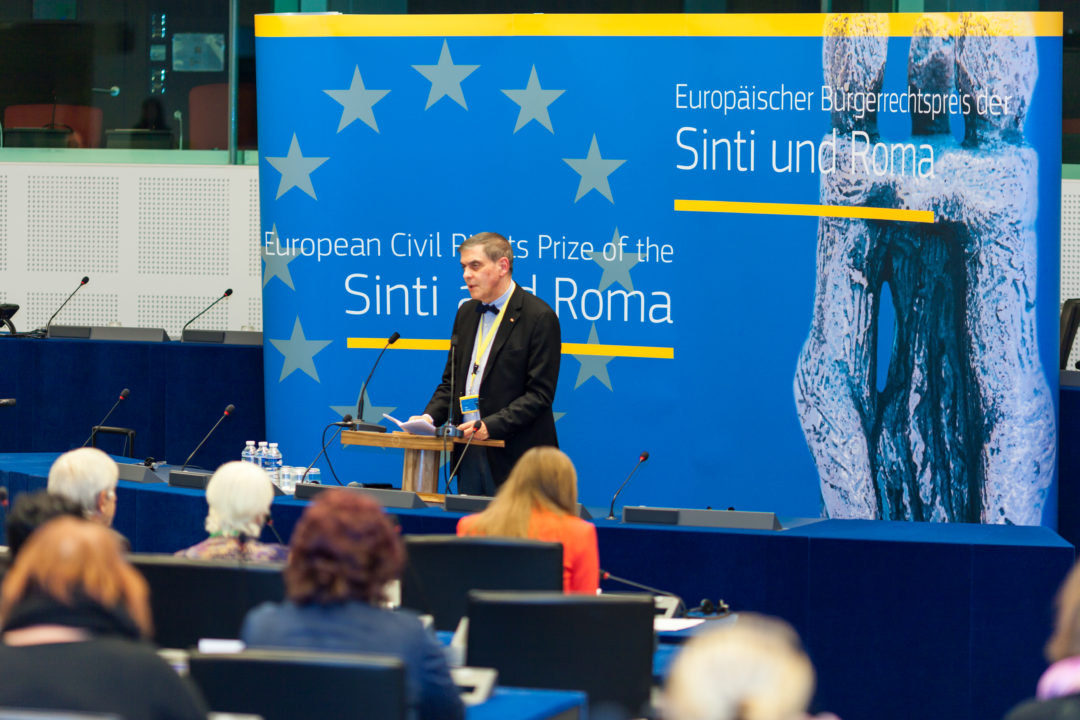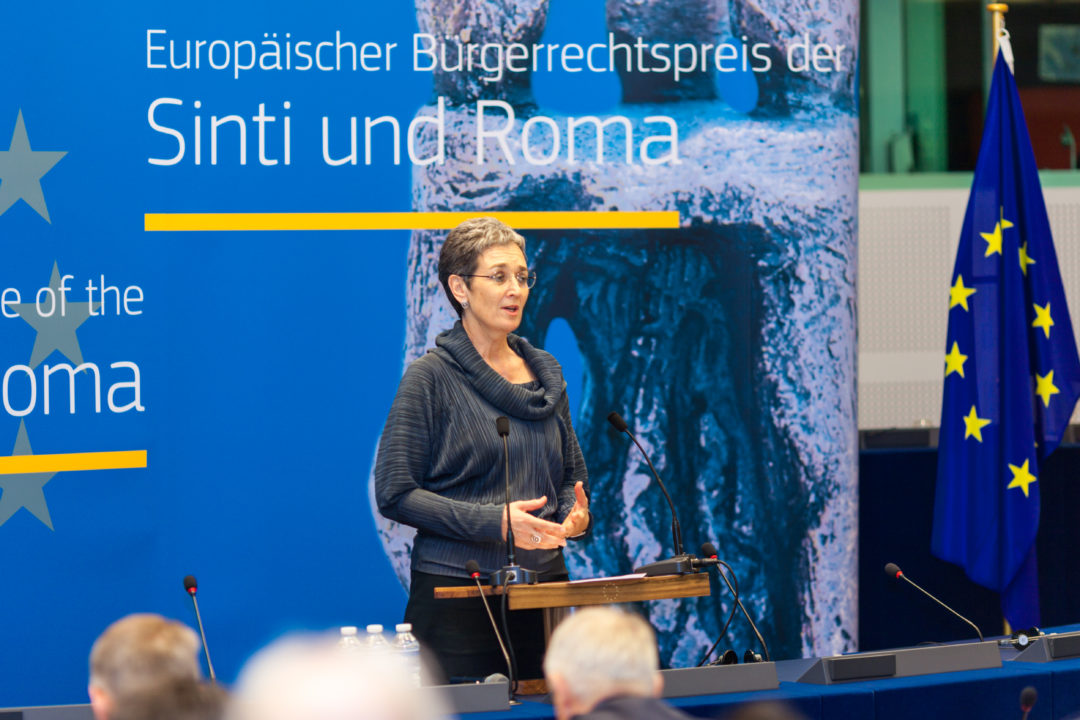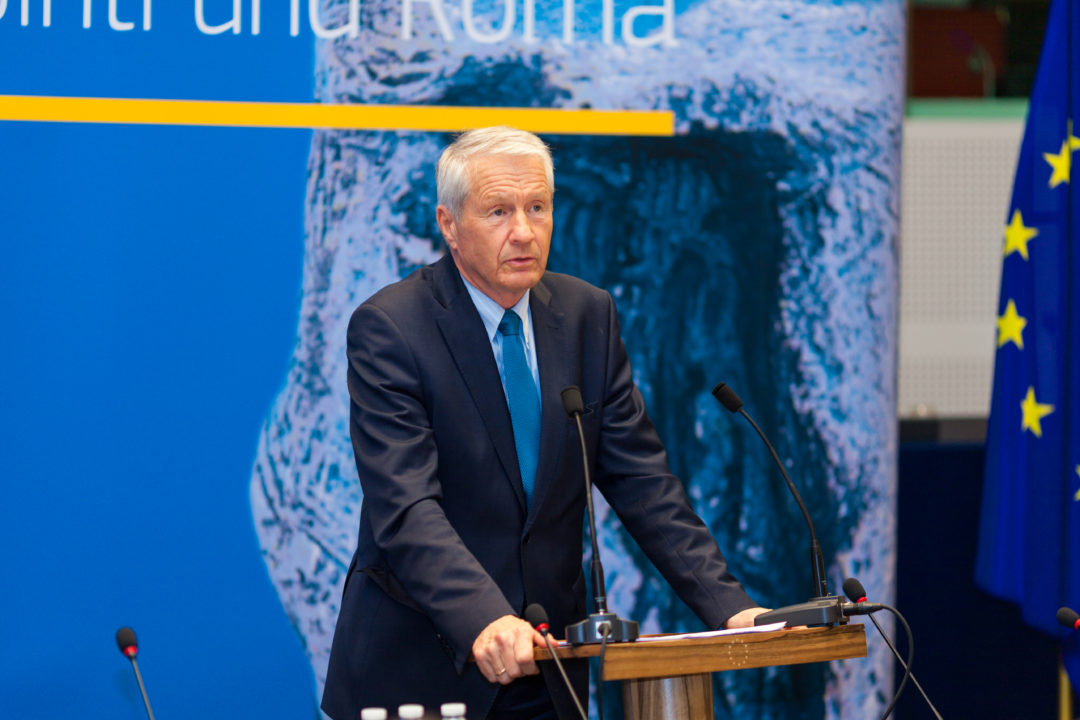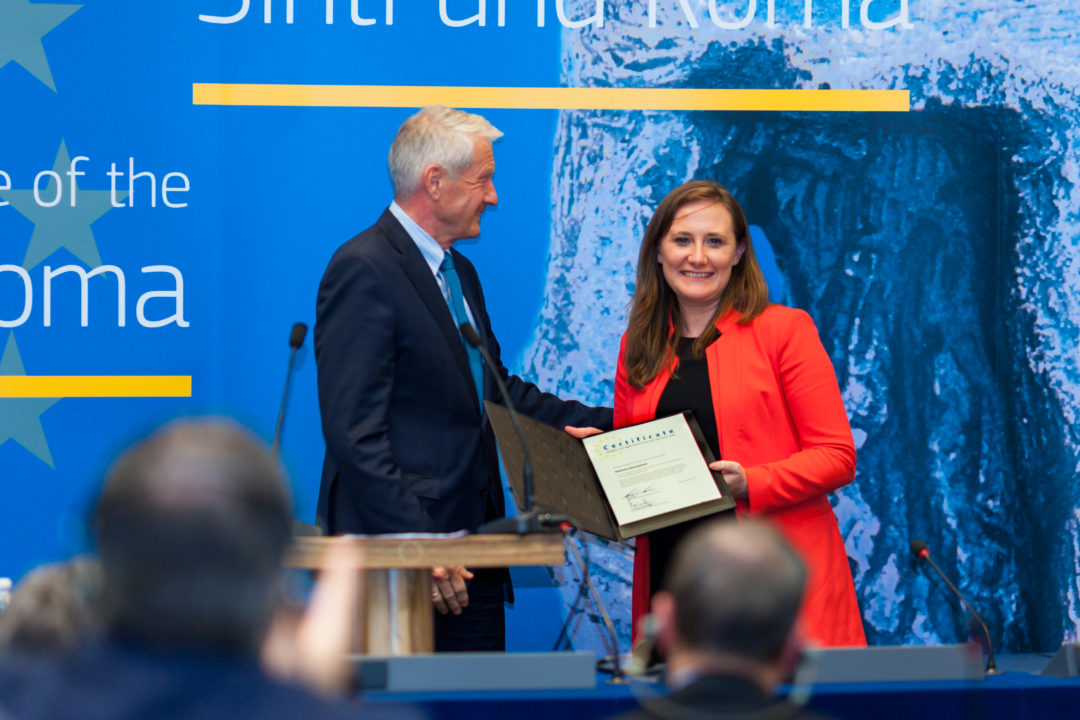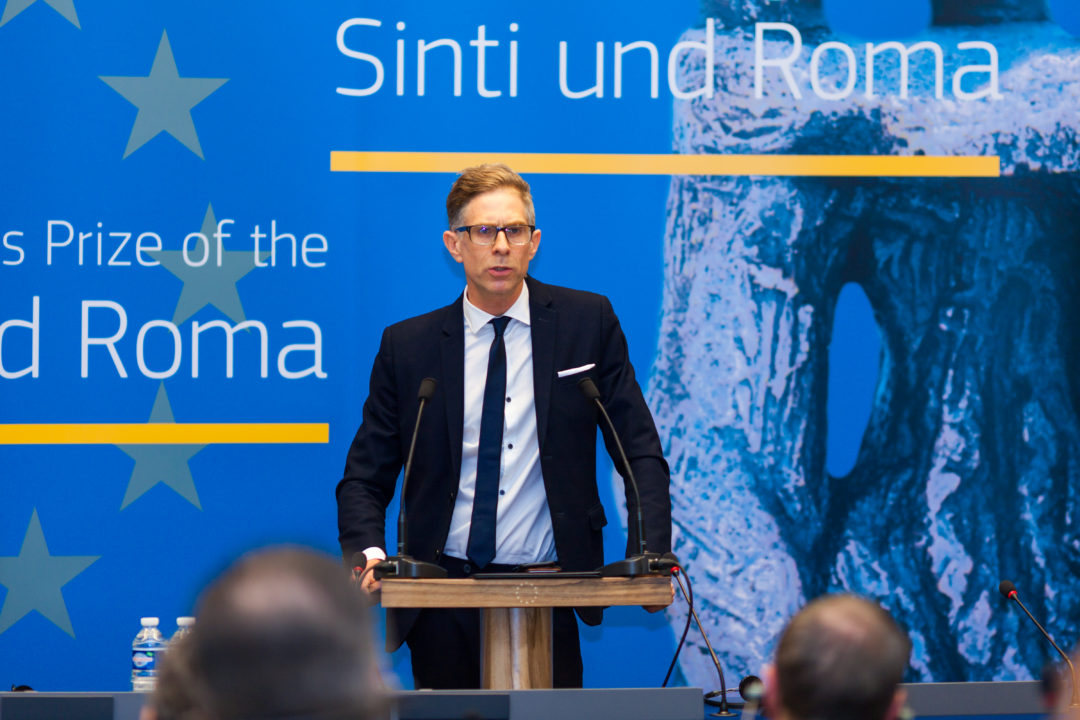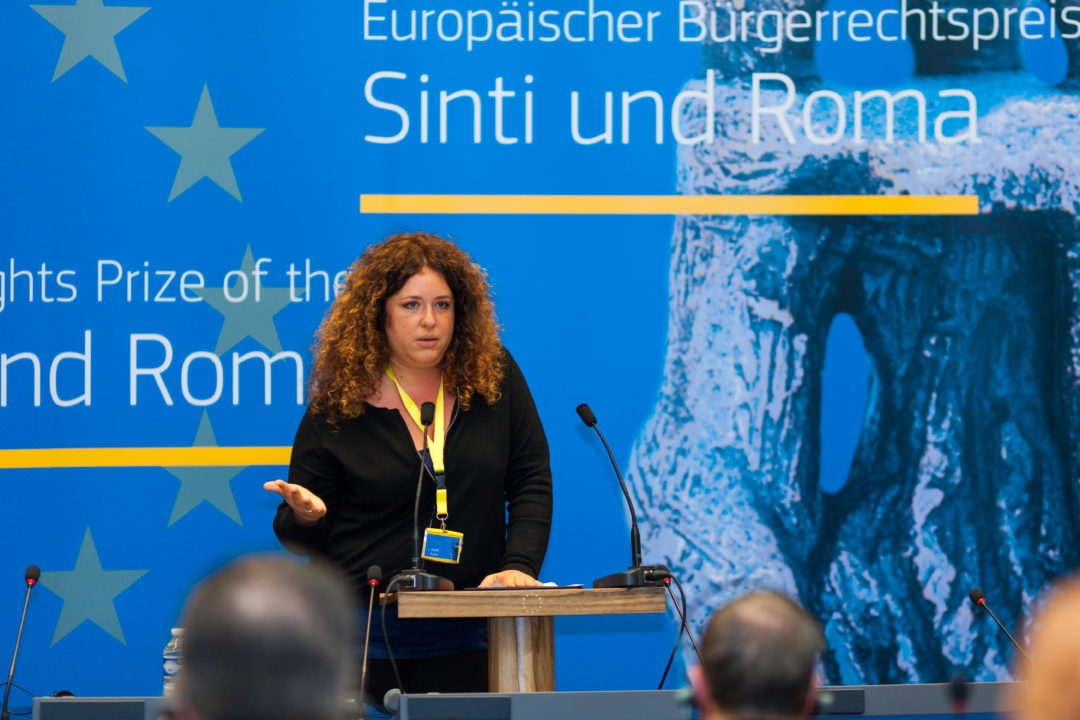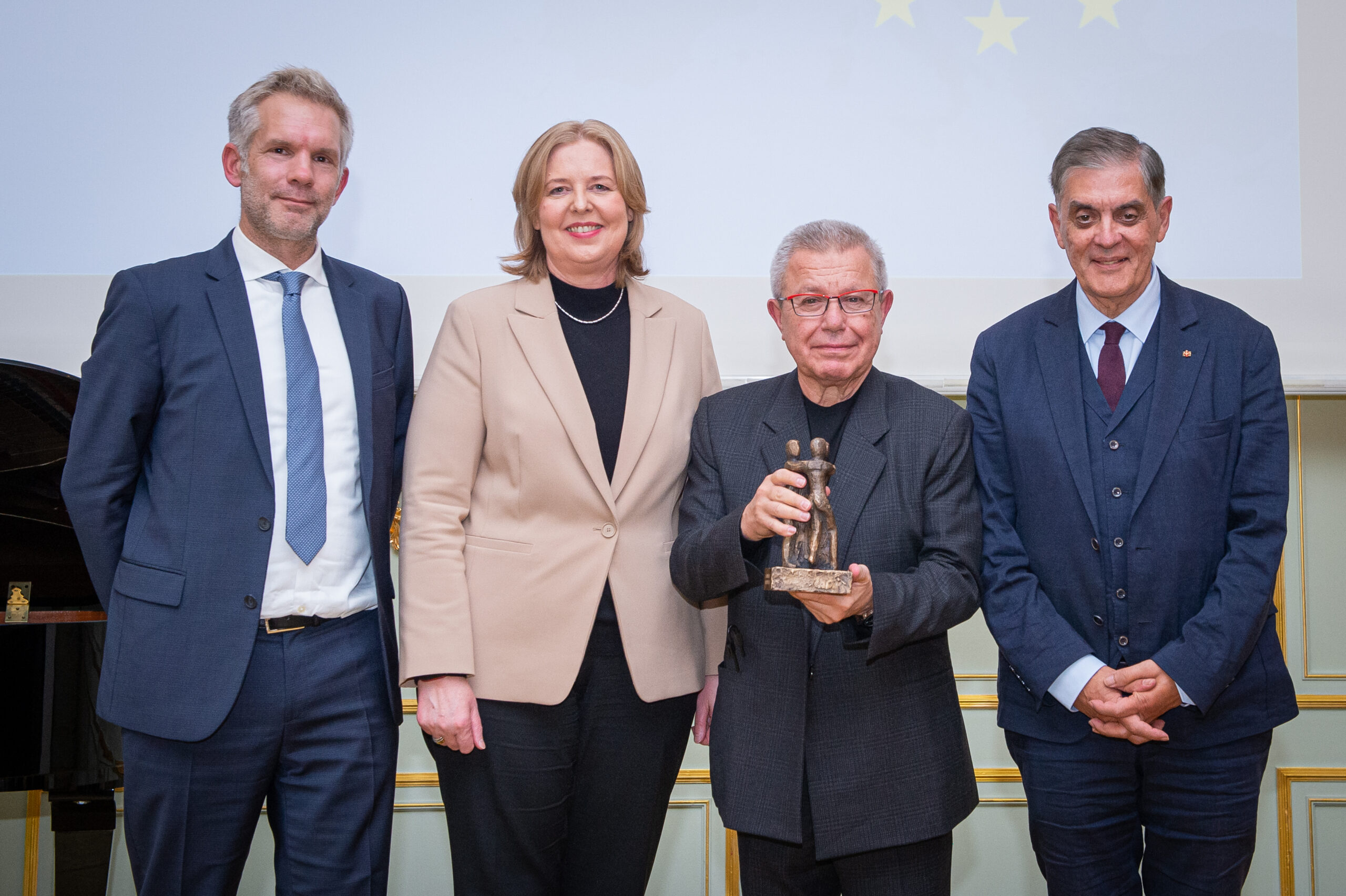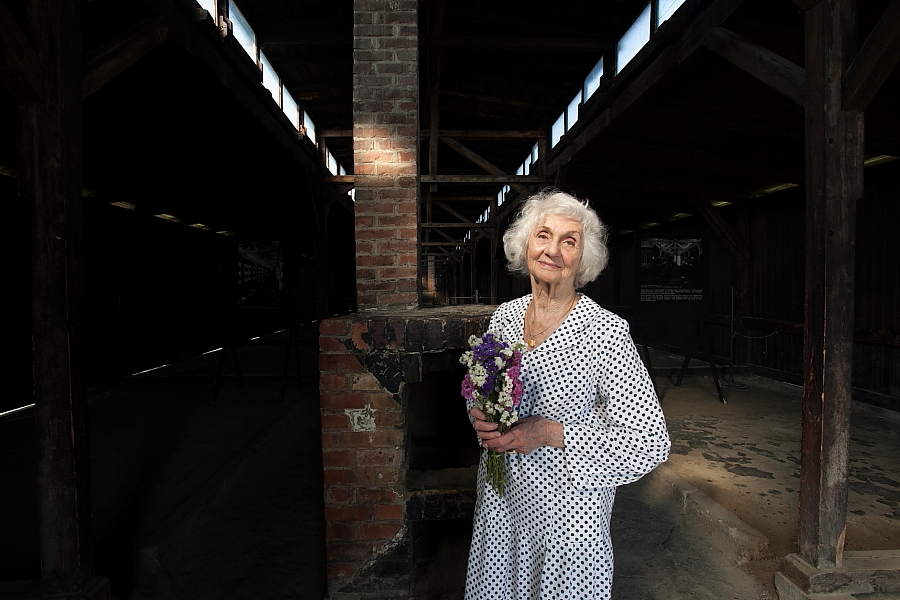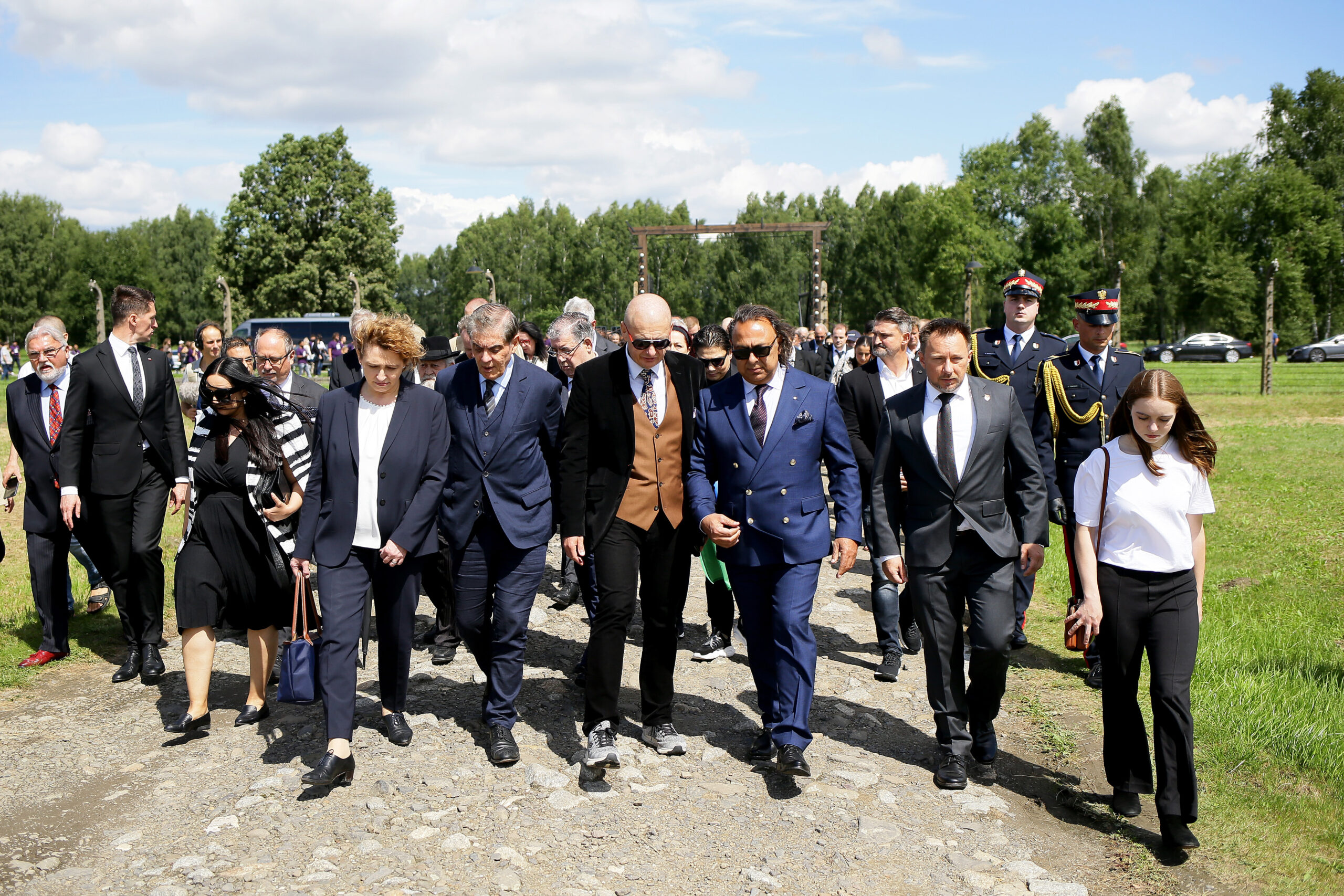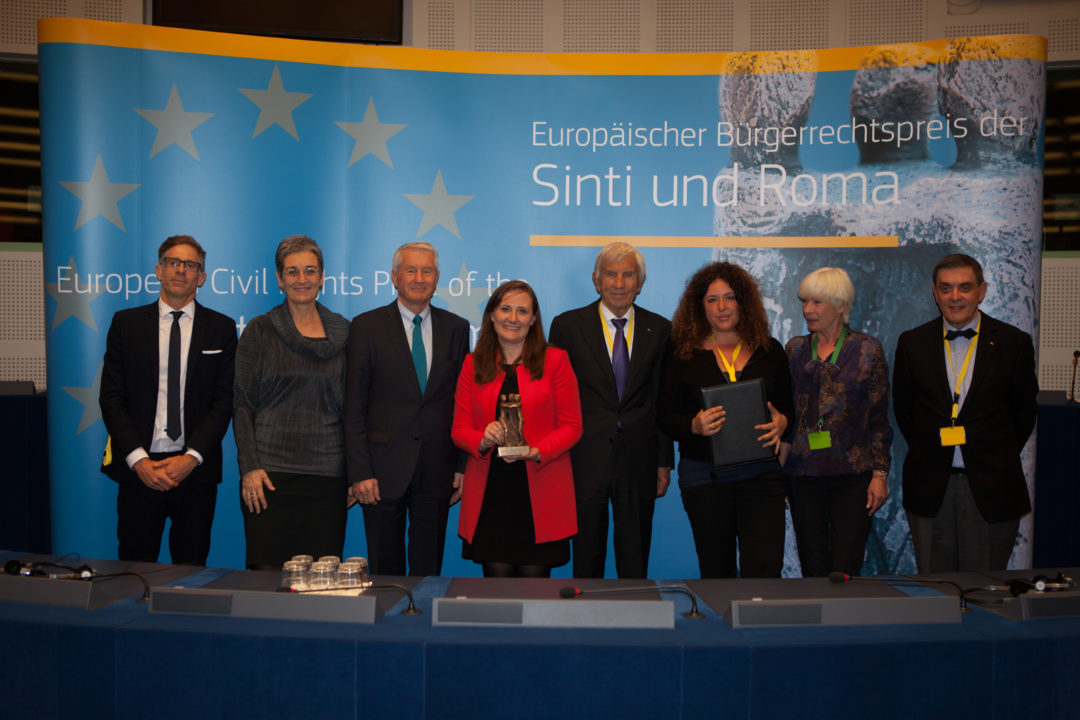Amnesty International
Even today, Sinti and Roma in Europe suffer from massive stigmatization and exclusion. The human rights organization Amnesty International has been campaigning against this for many years and mobilizes against the discrimination of the minority in all aspects of life, especially concerning formal education and housing.
Against the background of a new wave of discrimination against Sinti and Roma, Secretary General Thorbjørn Jagland stated in his laudation ‘If human rights do not apply to everyone, they do not apply to anyone‘. Amnesty International appeals to the conscience of the European governments and is the voice for the voiceless.
Iverna McGowan, Head of the Amnesty International Office for European Institutions, stated in her acceptance speech that Amnesty International could only accept the award for the work done because of the outstanding work of many Roma and non-Roma organizations and individuals on site. They also deserve the prize. She once again referred to the discrimination in the field of education and appealed in particular to the governments of the Czech Republic and Slovakia. ‘It is not acceptable that in 2016 children are denied access to education just because they are Roma’.
Moreover, she emphasized that the marginalization of the minority of Sinti and Roma is not only an Eastern European but also a Western European issue, citing Italy as an example, where people are driven from their houses and forced to live next to landfills. ‘The struggle is far from over‘, McGowan concluded her speech, referring to the scandalous and inhumane conditions in Greek refugee camps.
Romani Rose, the Chairman of the Central Council of German Sinti and Roma, emphasized that the election of the European Parliament as the venue for the award ceremony was intended to send out a double signal. Rose underlined the European dimension of the prize and stressed the special role of the European institutions concerning the protection of minorities. ‘In light of the alarming human rights situation of the Sinti and Roma in almost all European countries the prize should contribute to the enforcement of human rights and equal opportunities for our minority in their home countries‘.
The Vice President of the European Parliament, Ulrike Lunacek, also put the European idea at the center of her speech: ‘Sinti and Roma are citizens of their countries, they are Europeans, thus they are entitled to all civil rights, not one less’. She went on to say, ‘Minorities belong in the middle of society, not on the margins‘.
In his speech, Manfred Lautenschläger, the prize’s donor, asked how, in view of the breach of civilization caused by the Holocaust, the victims of that time are still being forced into the role of victims in many places today:
‘As a dedicated citizen I have to ask myself: Against this historical background, how is it possible that large sections of the minorities in the European countries have no chance of leading a self-determined life? That they are still treated like foreigners and marginalized in countries where they have been at home for centuries?‘
Special Prize Winner Eszter Hajdú
In her film ‘Judgement in Hungary’, released in 2013, Hungarian film maker Eszter Hadjú documents the two and a half year long trial against the right-wing extremist perpetrators who attacked six villages in Hungary in 2008 and 2009, murdering six Roma, including a 5 year old child.
Hadjú exclusively observed the trial of the three main defendants and their accomplice – until now no trial against Nazis has ever been completely documented on film in the courtroom. In the course of the hearings, blatant investigation errors became known and the question arises whether this is a mere botch-up or deliberate manipulation. After almost 170 days of hearings, the main defendants were sentenced to life imprisonment. However, the Hungarian Roma population continues to live in fear, partly because one of the perpetrators involved in the murders is still on the loose.
The jury valued this highly intensive documentary, which tells a lot about the widespread resentment towards Roma and Jews in Hungary, and decided to award Eszter Hadjú with a special prize for her commitment.
